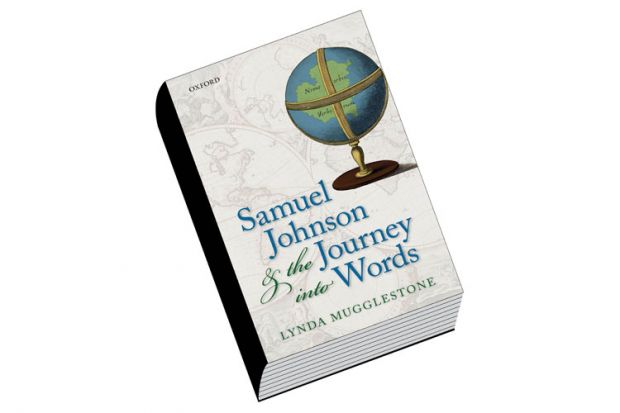Samuel Johnson delivered a good line in self-deprecation. His monumental A Dictionary of the English Language (1755) remains a remarkable achievement, but in his voyage around the word in the 18th century Johnson depicted the role of “lexicographer” in the most unflattering terms: “A writer of dictionaries, a harmless drudge, that busies himself in tracing the original, and detailing the signification of words.”
Yet he was both drudge and judge. While Lynda Mugglestone argues that he was less resistant to foreign words than previously thought, Johnson speaks of “contamination” where languages meet, and in the passage she cites in defence of his practice one detects a patriotic, proprietorial stance: “He that has long cultivated another language, will find its words and combinations croud upon his memory; and haste or negligence, refinement or affectation, will obtrude terms and exotick expressions.”
Johnson was, Mugglestone insists, raising “wider questions about the nature of loans and lexical borrowing”, so that while he appears to be policing the language, checking the passports of words, and treating with suspicion those that crossed from Calais, he was actually being more descriptive than prescriptive. Ironically, the word “journey” itself comes from the French for “day”, but Johnson’s journey lasted years and took him deep into his mother tongue. It was also a work of translation – Johnson was a translator and poet, as well as a lexicographer.
There is indubitably a colonial aspect to his endeavour. He complained that his task was a thankless one while comparing his efforts to those of an experienced explorer: “I have sailed a long and painful voyage round the world of the English language.” He liked this metaphor so much, Mugglestone observes, that he recycled it, likening his labours to a “hazardous and fatiguing voyage round the literary world”, and crossing “a vast Sea of words”. The drudge could be a pioneer or a pirate.
Johnson was prickly and picky. He disapproved of the word “prejudice” becoming bound up with injury, saying, “It were therefore better to use it less.” He didn’t like “shabby”, or “lackey”, perhaps because he was getting his hands dirty laundering the language, doing journeyman’s work. But there was art as well as labour in his work with words. Mugglestone notes that while we tend to see lexicography as “devoid of literary device”, it’s not as plodding or objective as it seems: “Johnson’s diction is qualitative, evaluative – and often, it seems, transparently subjective.”
Reading this jaunty account of Johnson’s jaundiced journey put me in mind of George Orwell’s famous essay “Politics and the English language”, with its mission “to drive out foreign phrases”. It also reminded me of Raymond Williams, who said: “Anyone who reads Dr Johnson’s great Dictionary soon becomes aware of his active and partisan mind as well as his remarkable learning.” Williams detected, in the Oxford English Dictionary, “the ideology of its editors”. Dictionaries are never neutral. Journeys into words always come with political baggage, boundaries and bias. That’s why it helps to go below deck and see the workings, and that’s what makes this journey round Johnson so richly rewarding. Mugglestone’s scholarship displays deep learning with a deceptive lightness, a talent she shares with her subject.
Willy Maley is professor of Renaissance studies, University of Glasgow.
Samuel Johnson and the Journey into Words
By Lynda Mugglestone
Oxford University Press, 304pp, £25.00
ISBN 9780199679904
Published 27 August 2015
后记
Print headline: Where no man has gone before




